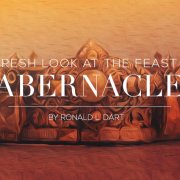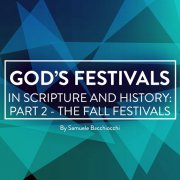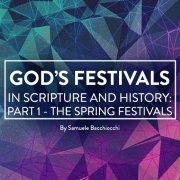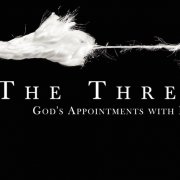My thoughts on Christmas
As a follower of Christ, I believe there are only three options when reviewing the customs and traditions of Christmas: 1) Remove Christ from Christmas, 2) Remove man-made traditions (of questionable origins, as indicated in the paragraphs below) from Christmas, or 3) abandon man-made traditions associated with Christ and adopt God’s Holy Days.[1]
For the millions of non-believers who celebrate Christmas around the world, I believe that many of the traditions associated with Christmas can serve as stumbling blocks in the pursuit of following Christ. Rather than promoting Christ, much of what is presented to us during this holiday season focuses on mass materialism as highlighted in a recent Herald Sun article explaining that “product offer is far more important than festive cheer” and “a good Christmas is most likely when there is a wide range of exciting, new items for shoppers to buy.”[2]
In a recent article in the Huffington Post, a group of atheists were reported to plan a Christmas advertising campaign featuring a photograph of smiling people wearing Santa Claus hats with a caption of: “No God? . . . No problem! Be good for goodness sake.”[3] Stories like this as well as a continual bombardment of images of Santa Claus, mistletoe, Christmas trees, and reindeer has forced me to ask the question: what do these things have to do with Jesus Christ?
As a recent follower of Jesus Christ, I have attempted to consult the Bible for answers to these questions and have found no Biblical evidence for Christmas (or Easter for that matter). Being the type of individual who likes performing research, my quest to uncover the origins of these various symbols and traditions uncovered some rather interesting yet shocking information:[4]
“December 25 is referred to in documents as Christmas Day in A.D. 324 for the first time. Under the Roman emperor Justinian [A.D. 527-565] it was recognized as an official holiday. An old Roman festival played a major part in the choice of this particular day. December 25 in ancient Rome was the ‘Dies Natali Invictus,’ ‘the birthday of the unconquered,’ the day of the winter solstice and at the same time, in Rome, the last day of the Saturnalia, which had long since degenerated into a week of unbridled carnival.”[5]
“In Rome, the divinity of the Sun came very early on; and then, centuries afterwards, in the superb dome of Hadrian’s Pantheon, the central opening, surrounded by star-like rosettes, represented the solar orb… Before long, the emperor Aurelian established a massive temple of the Unconquerable Sun as the central and focal point of the entire religious system of the state. The birthday of the god was to be on December 25, and this, transformed into Christmas day, was one of the heritages that Christianity owed to his cult.”[6]
“Regarding Constantine’s Edict of Toleration in AD 313, “The services of worship increased in splendor, but were less spiritual and hearty than those of former times. The forms and ceremonies of paganism gradually crept into the worship. Some of the old heathen feasts became church festivals with change of name and of worship.”[7]
“The exact date of Christ’s birth is not known. The early Christians did not celebrate His birth, because they considered the celebration of anyone’s birth to be a pagan custom. The first mention of the observance of Christ’s birthday appears about A.D. 200. For many years, several dates were used. December 25 was first mentioned in 336.”[8]
“The Christmas tree, now so common among us, was equally common in Pagan Rome and Pagan Egypt. In Egypt that tree was the palm tree; in Rome it was the fir; the palm tree denoting the Pagan Messiah, as Baal-Tamar, the fir referring to him as Baal-Berith. The mother of Adonis, the Sun-god and great mediatorial divinity, was mystically said to have been changed into a tree, and when in that state to have brought forth her divine son. If the mother was a tree, the son must have been recognized as the ‘Man the branch.’ And this entirely accounts for the putting of the Yule Log into the fire on Christmas Eve, and the appearance of the Christmas tree the next morning.”[9]
“By absorbing such pagan feasts and traditions, the Christian Church could subtly bring in its own theology: in this case, establishing the good Saint Nicholas, bringer of love and gifts, while grudgingly allowing the presence of the Olde Religion’s Herne/Pan, but only as a slave to Saint Nicholas. Thus, in parts of Europe, the Church turned Herne into Saint Nicholas’ captive, chained Dark Helper; none other than Satan, the Dark One, symbolic of all evil…. In Holland and several other European countries, the Saint Nicholas figure is still highly esteemed. He appears as a tall, dignified, bearded, white-haired old man, dressed as a Catholic bishop, complete with cloak, mitre, and pastoral staff, a seemingly genuine Catholic saint, but with a bizarre, quite unsaintly habit of riding through the skies on a white horse, followed by his Dark Helper. It seems that our Catholic saint inherited some of these customs from the pagan god Wodan, who had also been a bearded, white-haired old man, also dressed in a hat and cloak, carried a staff (or spear), rode a white horse, and dragged along the same dark slave/helper on a chain.”[10]
In light of the following historical background, it is my strong belief that the modern tradition of Christmas is a display of tug of war between truth and tradition, with modern tradition leaving less and less room for Jesus Christ. Although many genuine Christians (of whom many I’m very close to) state that it is ok to celebrate Christmas (and Easter) regardless of the historical origin of the various symbols and traditions, indicating, “that isn’t what it means to me” and “these symbols hold no power of their own”[11], I believe the greater question should be “does it matter to God?”
“Be careful to listen to all these words which I command you, so that it may be well with you and your sons after you forever, for you will be doing what is good and right in the sight of the Lord your God. When the Lord your God cuts off before you the nations which you are going in to dispossess, and you dispossess them and dwell in their land, beware that you are not ensnared to follow them, after they are destroyed before you, and that you do not inquire after their gods, saying, ‘How do these nations serve their gods, that I also may do likewise?’ You shall not behave thus toward the Lord your God…” (Deuteronomy 12:28-31)
“Thus you are to keep My charge, that you do not practice any of the abominable customs which have been practiced before you, so as not to defile yourselves with them; I am the Lord your God.” (Leviticus 18:30)
In closing, I’d like to take a moment to suggest that each one of us is willing (if we haven’t already) to investigate the history of any and all traditions we celebrate. If Christ is connected at all to any of the traditions we hold, I propose that those traditions are only founded from the Holy Bible. It is my earnest desire that the worship of the one true God is only ever based on Scripture and I greatly look forward to the time when “no longer will they teach their neighbor, or say to one another, ‘Know the Lord,’ because they will all know me” (Jeremiah 31:34) and when all nations will come to worship God through His Holy Days[12] and not man-made holidays.
God bless you all.
-Richard Shaules
Endnotes:
[1] As those listed in Leviticus 23
[2] http://www.heraldsun.com.au/business/christmas-sales-challenge-for-retailers-with- 2 http://www.heraldsun.com.au/business/christmas-sales-challenge-for-retailers-with- lacklustre-products/story-fni0dcne-1226783510272
[3] http://www.huffingtonpost.com/louise-mirrer/the-invention-of-santa- cl_b_394031.html
[4] Most of these quotations are referenced from Hope of Israel Ministries. In Should Christians Celebrate “Christmas”. Retrieved December 25, 2013 from http://www.hope- of-israel.org/cmas1.htm
[5] Keller, W. (1983, p. 331). The Bible as History. New York, NY: Bantam Books.
[6] Grant, M. (1979, pp. 391-392). The History of Rome. London, UK: Prentice Hall.
[7] Hurlbut, J. L. (1970, p. 79). The Story of the Christian Church. Grand Rapids, MI: Zondervan Publishing House.
[8] “Christmas.” The World Book Encyclopedia. 2008 ed. 2008.
[9] Hislop, A. (2007, p. 195). The Two Babylon’s. Minneapolis, MN: Filiquarian Publishing, LLC.
[10] Renterghem, T. (1995, p. 97). When Santa Was A Shaman: Ancient Origins of Santa Claus & the Christmas Tree. Woodbury, MN: Llewellyn Publications.
[11] Personal conversations with close friends and colleagues.
[12] Zechariah 14. This beautiful chapter highlights a time when all of the nations will celebrate the Feast of Tabernacles.







Recent Comments: